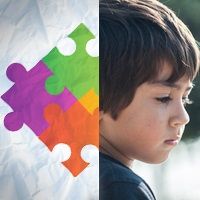Cognitive Behavioral Therapy for Children with Autism and Sleep Disorders
Researchers suggest that family-based cognitive behavioral therapy may be a key factor in treating children with autism spectrum disorder who have problems sleeping.

According to researchers at the University of Missouri, family-based cognitive behavioral therapy may be a key factor in treating children with autism spectrum disorder (ASD) who have problems sleeping.
“Sleep problems for any child, but especially children with ASD, may cause issues in behavior and mood as well as impact learning abilities,” said Christina McCrae, PhD, professor of health psychology in the School of Health Professions and director of the Mizzou Sleep Research Lab. “In treating insomnia and other behavioral sleep issues, I have found that there is no substitute for cognitive behavioral therapy; yet, it is still unclear how to best use such therapy for children with ASD who struggle with communication.”
Many previous studies have highlighted the link between behavioral issues in ASD and dysregulated sleep. A study published in the Journal of Autism and Developmental Disorders examined the relationship between specific types of sleep disorders and behavioral problems in 81 children with ASD.
The researchers reported that sleep problems were “significantly associated with physical aggression, irritability, inattention, and hyperactivity,” and that “distinct sets of sleep problems accounted for between 22 and 32% of the variance in behavior problems.” They pinpointed night awakenings as being particularly strongly correlated with daytime behavioral problems.
Cognitive behavioral therapy is a short-term form of therapy that focuses on changing how people think about, and react to, specific situations, with patients typically keeping a sleep diary and working with a therapist to identify behaviors that interfere with their sleep. Used by therapists for decades, cognitive behavioral therapy has been shown to be effective in treating various health issues, including insomnia.
In order to better understand the benefits of a new, family-based cognitive behavioral therapy and how it may work to improve sleep in children with ASD, McCrae and Micah Mazurek, PhD, associate professor of health psychology at the University of Missouri, are conducting a sleep treatment study—through the Research Core at the MU Thompson Center for Autism and Neurodevelopmental Disorders—among patients aged 6 to 12 years who have been diagnosed with an ASD and have experienced problems falling and/or staying asleep.
McCrae suggested that parents who notice that their child with ASD is having problems at home or in school may find it helpful to check their child’s sleeping habits. She also recommended routine screening for sleep problems by parents and healthcare providers in order to address these problems early and hopefully avoid additional problems.